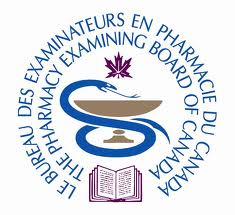what do you know about : Balanitis
What Is It?
Balanitis is an infection or inflammation of the skin on the head (glans) of the penis. In men who are not circumcised, this area is covered by a flap of skin known as the foreskin, or prepuce. Balanitis can occur in both circumcised and uncircumcised men, although it occurs more commonly in men who are not circumcised. Young boys generally are affected only if they have a very tight foreskin that is difficult to pull back.A variety of infections and skin conditions can cause balanitis. These include:
- Infections with yeast (Candida) or bacteria that live on the skin (the most common cause)
- Sexually transmitted infections, such as herpes simplex
- Irritation of the skin by soap, detergents or spermicidal jelly
- Benign (noncancerous) skin conditions such as psoriasis
- Some types of skin cancer (very rare)
When balanitis keeps recurring, it may be caused by a yeast infection transmitted back and forth between partners during sexual contact.
Symptoms
Symptoms include:- A red, inflamed rash on the head and shaft of the penis or under the foreskin
- Itching or burning in the affected area
- A white, clumpy or yellowish discharge from the affected skin or from under the foreskin
Diagnosis
Your doctor usually can recognize balanitis immediately. Occasionally, a swab or scraping of skin may be examined under the microscope, or may be sent to the laboratory for further testing to confirm the diagnosis.When balanitis does not respond to treatment or appears different from a typical infection, your doctor may recommend that you see a dermatologist (skin specialist) or that a skin biopsy be done. In a biopsy, a small piece of skin is removed and examined in the laboratory. This is done to determine if you have an unusual type of infection or other type of skin condition that is causing your symptoms.
Expected Duration
Most cases of balanitis respond to treatment within three to five days.Prevention
Men who are uncircumcised should practice good hygiene, including fully retracting the foreskin during bathing. People with diabetes can help to prevent balanitis by carefully controlling their blood sugar.Treatment
Treatment depends on the cause.If your problem is caused by a yeast infection, you will be advised to use an antifungal cream. Clotrimazole (Lotrimin, Mycelex) is a very effective over-the-counter medication, which is also used for treating vaginal yeast infections and athlete's foot. Apply it to the affected area two to three times daily for 10 days. Your doctor also may recommend a prescription antifungal treatment, either in a cream or pill form.
If you have an infection with skin bacteria, you will be told to use an antibiotic cream, and to make sure you clean the area thoroughly. Occasionally antibiotic pills may be necessary.
When the skin is inflamed, but not infected, you will be advised to keep the area clean and dry and to avoid any soaps or skin lotions that may be aggravating the condition. Sometimes a cortisone cream can help to improve the problem more quickly. However, cortisone can make certain infections worse, so it is best to avoid this type of medication unless it is prescribed by a physician.
Circumcision often prevents repeated infections, especially in uncircumcised men who have a tight, difficult-to-retract foreskin. Once effective treatment begins, you usually do not need to avoid sex, although sexual contact can chafe or inflame the affected area. Rarely, sexual contact can pass an infection back and forth between partners. If this occurs, both partners may require treatment at the same time to prevent further episodes.
When To Call A Professional
Contact your physician if:- You develop balanitis that does not respond to hygiene measures and an over-the-counter antifungal medication
- Your physician's prescription does not appear to be curing your condition
- The balanitis keeps returning
- You have diabetes, because balanitis may be a signal that your blood sugar is not well controlled.



Comments